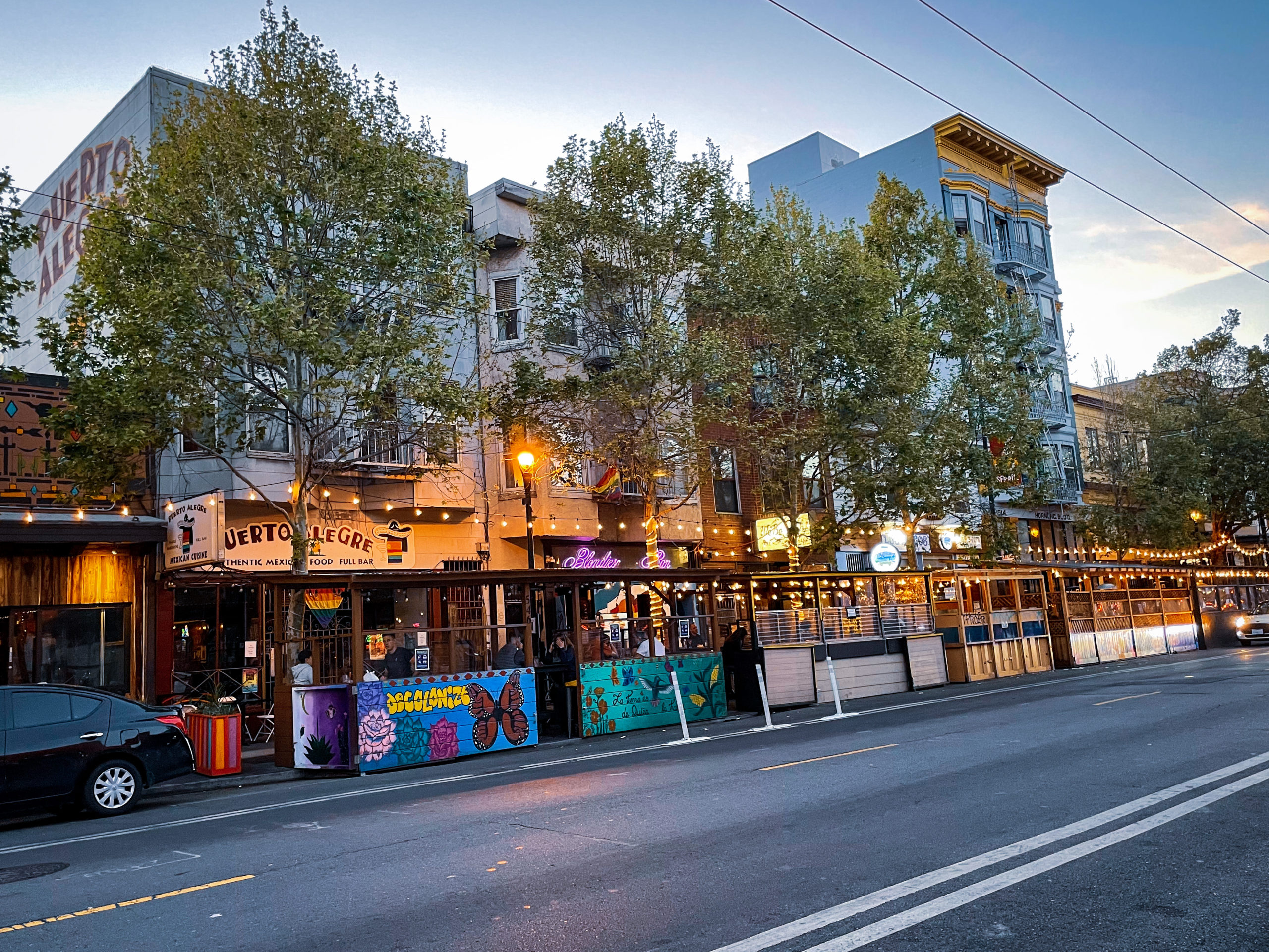North Beach restaurants thought they were in the clear to keep their parklets intact as is. Then came the city inspectors with violation letters in hand, citing potential fines if corrective measures weren’t taken.
Now, Mayor London Breed is trying to make good on her recent Medium post, which promised restaurateurs that “Shared Spaces are Here to Stay” and that the program was not in danger. Breed announced Thursday that she will introduce new legislation to the Board of Supervisors that would give San Francisco business owners until March 31, 2023 to get their parklets in legal working order.
Under the original legislation making the Shared Spaces program permanent, restaurants would have had to meet design and operating requirements — including those addressing traffic protections and accessibility — by Jan. 1, 2022. That deadline was extended to June 30 because of concerns from the business community; however, an updated site plan was required by March 31. While the mayor’s new proposal doesn’t specify when plans would need to be submitted, the mayor’s office said the due date would likely be December 2022.
So what’s with all the confusion over the deadlines? Part of the reason is that three separate city departments are involved in enforcing the design standards. In a true display of the city’s byzantine bureaucratic industrial complex, the San Francisco Fire Department, the San Francisco Department of Public Works and the San Francisco Municipal Transportation Agency all have inspectors working to point out flaws in parklet design.
“We’re working to coordinate their efforts so that the city is moving forward in one voice,” said Andy Lynch, the mayor’s communication director. Lynch said that businesses that are given violation notices will not be subject to fines if they are in communication with the city on a plan to rectify the issue.
However, he added that a “small handful” of violations — like when a parklet takes up an entire city block or has major sidewalk accessibility issues — will need to be addressed immediately. The city departments in charge of enforcement will dictate those “severe cases,” he said.
Lynch said businesses with questions regarding the guidelines should reach out to the Shared Spaces program directly, which will then direct them to the appropriate city department. He added that Shared Spaces will have additional services to help businesses, including consultants to answer questions about individual situations.
“The initial problem is that we were very, very lenient in the beginning of pandemic around these rules,” Lynch said.
To help ease the financial burden of redesigning their outdoor spaces, the mayor’s office says grants of up to $2,500 are available for small businesses that need to make changes in order to be in compliance with the requirements.
Notably, the mayor’s legislation won’t impact some of the other segments of the permanent Shared Spaces program that have drawn the ire of business owners, such as those dictating operating hours.
Rules like requiring parklet owners to make their spaces publicly accessible when unused for commercial purposes will still go into effect as planned.
